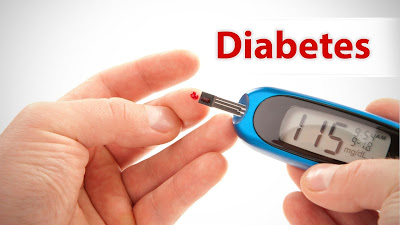Here's What You Should Know about Diabetes (Diabetes Mellitus) According to Experts
Diabetes mellitus is an enormous justification behind visual impairment, renal failure, coronary issues, stroke, and lower extremity expulsion. Research suggests that diabetes causes many deaths every year.
Diabetes mellitus (Diabetes) is a health condition in which the body fails to adequately produce insulin which leads to increased blood sugar levels (glucose). Insulin is a substance conveyed by beta cells of the pancreas to coordinate glucose. Insulin cuts down the blood glucose level.
When the pancreas doesn't make adequate insulin or when the body can't effectively use the insulin it conveys, this causes diabetes. Hyperglycaemia or raised glucose is an effect of uncontrolled diabetes and, over time, it causes veritable damage to the nerves and veins.
Categories of diabetes
Type 2 diabetes mellitus
This category is due to the body′s ineffectual usage of insulin because of physical inactivity or, excess body weight. It causes a person′s glucose levels to be unreasonably high. Usually, type 2 diabetes mellitus diagnosis is after intricacies have risen.
Type 1 diabetes mellitus
With this kind, the pancreas undergoes an autoimmune attack by the body's natural defense system and, there is deficient insulin production. The immune system wrongly makes antibodies and inflammatory cells that impact damage to the patient′s own body tissues.
Gestational diabetes mellitus
Gestational diabetes mellitus occurs during pregnancy and, if there is a delay in treatment, there could be serious complications. Tremendous hormonal changes during pregnancy can provoke glucose to ascend. Gestational diabetic individuals face complications during pregnancy and delivery.Peril factors for getting diabetes
- Overweight
- Family diabetes history
- Growing age
- Hypertension
- Insulin block
- Low levels of good cholesterol and raised levels of greasy oils in the blood
Early signs and symptoms of diabetes
Uncontrolled release of urine (polyuria)
When glucose levels are high, the kidneys endeavor to wipe out the excess sugar by filtering it through the blood. It causes a person to urinate frequently especially, at night.
Thirst (polydipsia)
Increased blood sugar levels in diabetic people cause polydipsia. When these sugar levels get high, the kidneys make more urine effortlessly to eliminate extra sugar from the body. In the event you become dehydrated and, you will need to drink more.
Continual hunger
In most cases, diabetic people don't get adequate energy from the food they eat. Due to the high glucose levels in diabetic individuals, the glucose doesn't enter the cells because of insufficient insulin. It is why the body cannot convert food into energy hence causing hunger.
Weight decrease
A relative or altogether insulin inadequacy, in the end, prompts weight decrease. The weight decrease happens even with an appetite increase.
Vision changes
Excess sugar in the blood can hurt the tiny veins in the eyes, which can cause a hazy vision. This foggy vision can occur in one or two eyes and, it may come and go. In case of delayed treatment, the damage to these veins becomes more severe and, one may lose vision permanently.
Weariness
Diabetic people always complain of fatigue which may be due to a lack of sugar moving into the body′s cells, high blood sugar levels, insufficient sleep or, sometimes depression.
Slow recovering of cuts and wounds
High sugar levels in the blood can hurt the body′s nerves and veins, which can debilitate blood spread. Accordingly, even minor cuts and wounds may require weeks or months to recover. The slow healing of wounds may grow the risks of sickness.
Tingling, deadness, or pain in the hands or feet
High glucose levels can impact blood circulation and damage the body′s nerves. In diabetic people, this can cause aches in the hands and feet.
Itching and yeast infections
Excess sugar in the blood and pee offers food to yeast which can incite pollution. These sicknesses occur in the bladder, skin, and genital locales. The impacted areas are usually itchy and, someone may experience burning-through, redness, and soreness. These signs may occur out of the blue.
Impact of diabetes on overall health
Diabetes can hurt the heart, veins, eyes, kidneys, and nerves. Combined with decreased blood flow, nerve damage in the feet increases the chances of foot ulcers and infection. Adults with diabetes have an increased risk of cardiovascular complications and strokes. Diabetes is one of the fundamental causes of kidney failure.
Diabetic retinopathy is a justification for visual impedance and happens due to long-term damage to the small vessels in the retina. Diabetes similarly fabricates the risk of having glaucoma, cascades, and other eye issues. Complications of the kidneys, known as diabetic nephropathy, can incite tissue scarring, pee protein setback, and eventually steady kidney disorder, sometimes requiring dialysis or kidney transplantation.
Prevention of diabetes
Following direct lifestyle, measures are convincing in thwarting type 2 diabetes. Below are some of the practices;
- Achieve and keep healthy body weight.
- Be physically active. Accomplish a regular, moderate activity like in 30 minutes on most days. More physical activity helps in weight control.
- Eat a well-balanced diet; avoid refined sugars and saturated fats.
- Avoid tobacco use. Smoking forms the risk of diabetes and cardiovascular sickness.
Examination and treatment
Testing glucose is the first step for diagnosis. Treatment of diabetes incorporates diet and physical activity plus lowering blood glucose and other severe factors that damage veins. Avoiding tobacco use is helpful as it prevents further complications.
Below are some of the cost-saving treatment measures:
- Blood glucose control, particularly in type 1 diabetes. People with type 1 diabetes require insulin, and those with type 2 diabetes can be treated with oral medication but may similarly require insulin.
- Heartbeat control.
- Foot care. Patient self-care by staying aware of foot hygiene, for example, wearing appropriate footwear, seeking professional health care of feet.
- Assessing and treatment for retinopathy.
- Blood lipid control (to oversee cholesterol levels).
Outline
Any person who experiences possible signs of diabetes should visit a health professional for evaluation, especially if they have other perilous factors for cultivating this condition. Early detection and treatment of type 2 diabetes can improve a person′s life and reduce the risk of severe complications.




Comments
Post a Comment